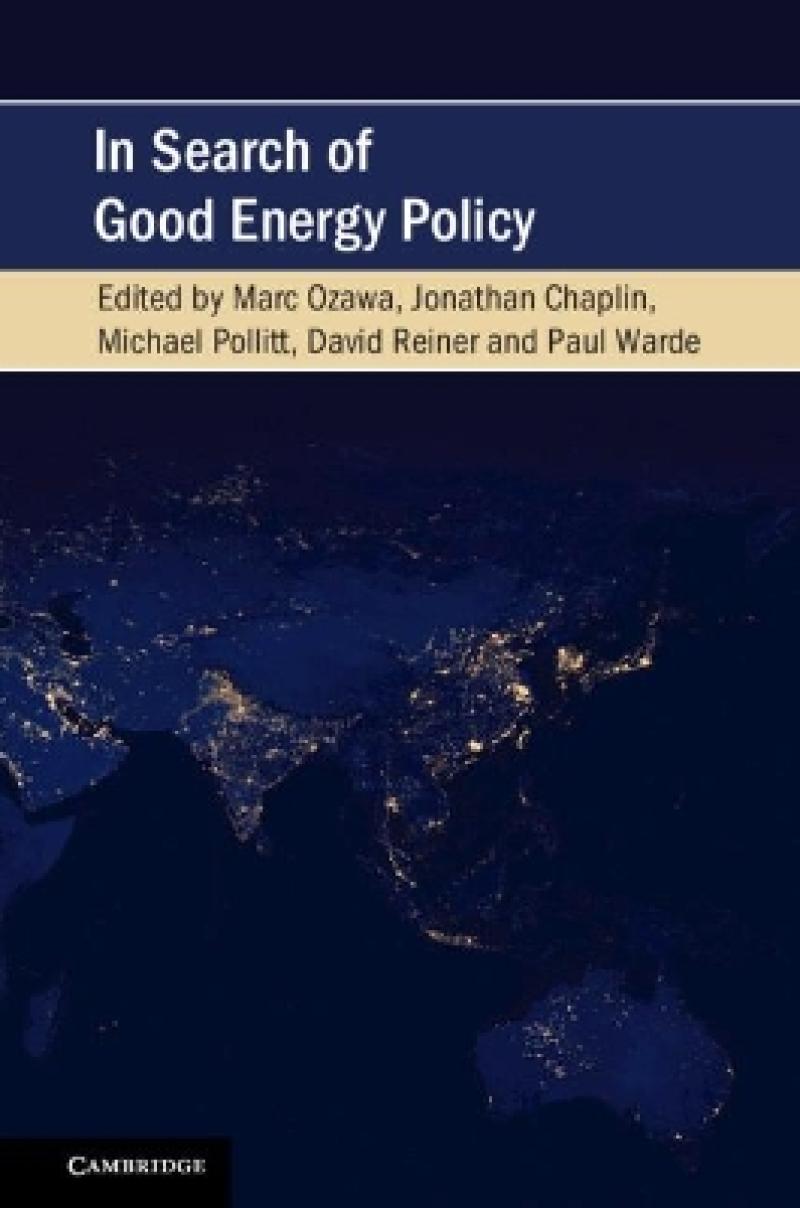Drawing on political science, economics, philosophy, theology, social anthropology, history, management studies, law, and other subject areas, In Search of Good Energy Policy brings together leading academics from across the social sciences and humanities to offer an innovative look at why science and technology, and the type of quantification they champion, cannot alone meet the needs of energy policy making in the future. Featuring world-class researchers from the University of Cambridge and other leading universities around the world, this innovative book presents an interdisciplinary dialogue in which scientists and practitioners reach across institutional divides to offer their perspectives on the relevance of multi-disciplinary research for 'real world' application. This work should be read by anyone interested in understanding how multidisciplinary research and collaboration is essential to crafting good energy policy.
Les mer
1. Introduction Marc Ozawa, Michael Pollitt, David Reiner, Jonathan Chaplin and Paul Warde; Part I. Multi-Disciplinary Perspectives: 2. Political science and energy David M. Reiner; 3. Economics – the proper valuation of security and environment David Newbery; 4. Good energy: philosophical perspectives Tim Lewens; 5. Public theology – 'grounded': an energy policy rooted in human flourishing Jonathan Chaplin; 6. Anthropology and energy policy; 7. History: a long view? Paul Warde; 8. Management – from the drawing board to successful delivery Jim Platt; 9. Legal aspects of energy policy Tibisay Morgandi and Jorge E. Viñuales; Part II. Cases and Multi-Disciplinary Responses: 10. The ethics of nuclear energy: its past, present and future Behnam Taebi and Sabine Roeser; 11. Fukushima and German energy policy 2005–2015/16 Christian Growitsch and Felix Höffler; 12. Rethinking the environmental state: an economic history of the Swedish environmental Kuznets curve for carbon Magnus Lindmark; 13. Fossil fuel systems to 100% renewable energy based smart energy systems: lessons from the case of Denmark, 1973–2017 Frede Hvelplund, Søren Djørup and Karl Sperling; 14. A political economy of carbon capture and storage: how interests have outstripped economics in shaping the evolution of a technology David M. Reiner; 15. Scaling clean energy for data centers: trends, problems, solutions Atif Ansar, Dan Madrigal and Seth Collins; 16. Public participation in the context of energy activities: the role of the Aarhus Convention Compliance Committee Leslie-Anne Duvic-Paoli; 17. Biofuel energy, ancestral time, and the destruction of Borneo: an ethical perspective Michael S. Northcott; 18. From inspiration to implementation: Laudato Si', public theology and the demands of energy policy Jonathan Chaplin; 19. Introduction to multi-disciplinary approaches Marc Ozawa and Michael Pollitt; 20. A comparative study of air pollution trends in historical London and contemporary Beijing Jacqueline Lam, Yang Han, Shan-Shan Wang, Victor O. K. Li, Michael Pollitt, and Paul Warde; 21. The power of Siberia: a Eurasian pipeline policy 'good' for whom? 22. Responses and final thoughts.
Les mer
Offers an innovative look at why science and technology cannot alone meet the needs of energy policy making in the future.
Produktdetaljer
ISBN
9781108455466
Publisert
2019-06-20
Utgiver
Vendor
Cambridge University Press
Vekt
640 gr
Høyde
228 mm
Bredde
153 mm
Dybde
19 mm
Aldersnivå
P, 06
Språk
Product language
Engelsk
Format
Product format
Heftet
Antall sider
388
